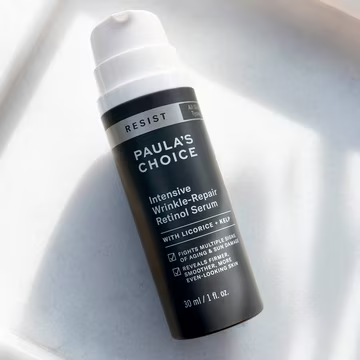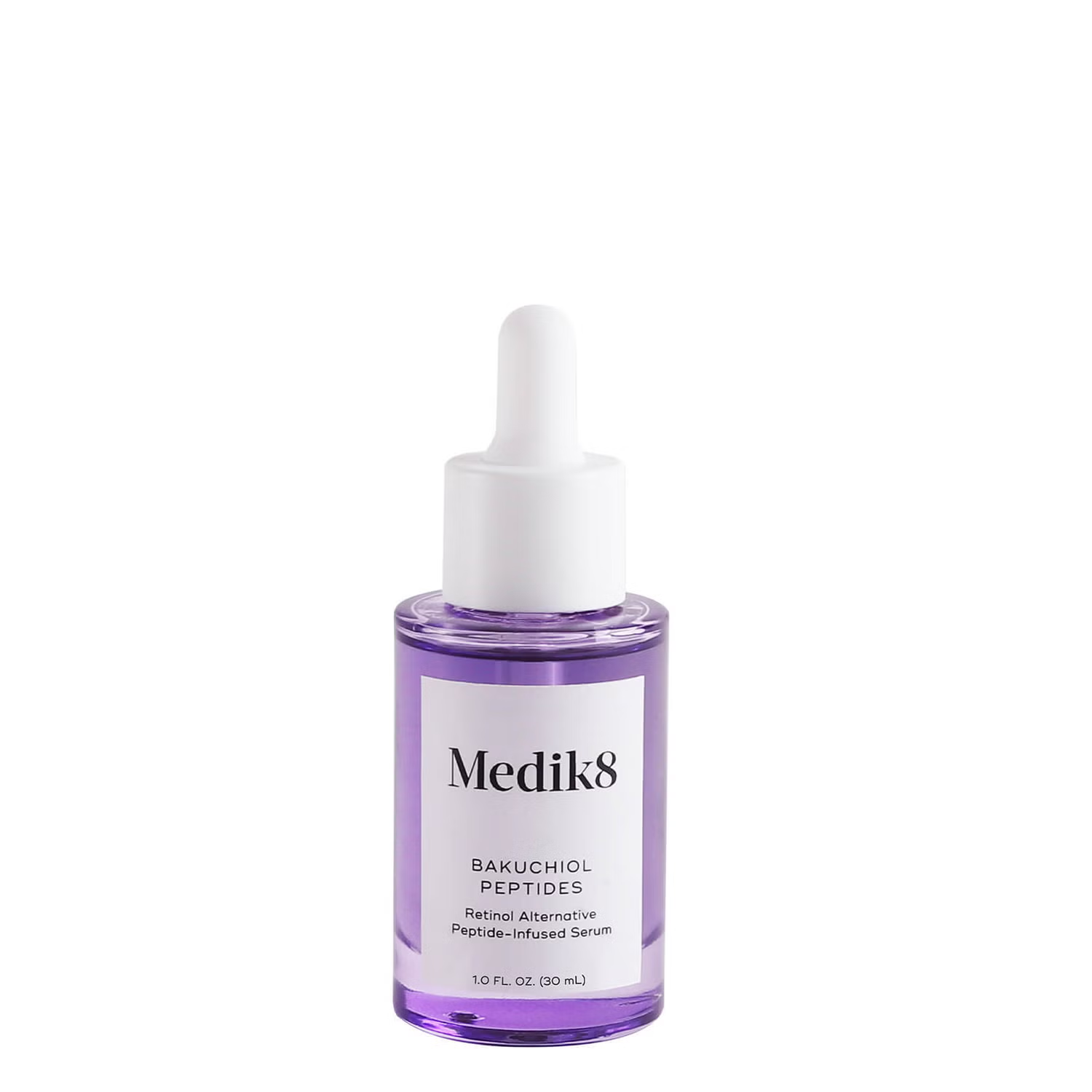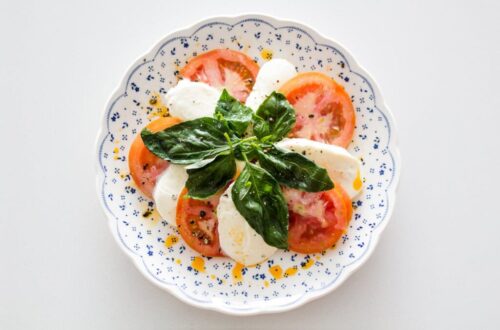Retinol vs. Bakuchiol : Which is Better for Anti-Aging?
Achieving radiant, youthful skin can be a journey. Two ingredients that often come up in this journey are retinol and bakuchiol. Both have fantastic anti-aging benefits but work differently. Let’s explore what they are, how to use them, and whether you can use both in your skincare routine.
What is Retinol?
Retinol is a form of Vitamin A. It has been a staple in skincare for decades. Retinol speeds up cell turnover, boosts collagen production, and reduces fine lines and wrinkles. It penetrates the skin, exfoliating at a cellular level, which keeps pores clear and improves texture.

Get my favourite one here: Link US | Link UK
The Science Behind Retinol
Retinol binds to retinoid receptors on the skin cells. This action activates gene expression and enhances cell turnover. It speeds up the replacement of old cells with new ones, promoting a fresher, healthier complexion.
What Retinol Does
- Accelerates Cell Turnover: Promotes faster shedding of old skin cells.
- Stimulates Collagen Production: Enhances skin elasticity and reduces fine lines.
- Unclogs Pores: Helps prevent and reduce acne.
- Improves Skin Texture: Makes skin smoother and more even-toned.
How to Use Retinol
- Start Slow: Begin with a lower concentration, such as 0.25% or 0.5%, and use it twice a week to allow your skin to acclimate.
- Apply at Night: Retinol can make your skin more sensitive to the sun, so it’s best to use it at night.
- Moisturize: Follow up with a good moisturizer to prevent dryness and irritation.
- Use Sunscreen: Always apply sunscreen in the morning to protect your skin from UV damage.
Precautions with Retinol
- Initial Irritation: Redness, dryness, and peeling are common when first using retinol. This usually subsides as your skin builds tolerance.
- Sun Sensitivity: Retinol increases photosensitivity, making sunscreen crucial.
- Pregnancy and Nursing: Retinol is generally not recommended during pregnancy or breastfeeding due to potential risks to the fetus or baby.
Retinol: The Ultimate Anti-Acne and Anti-Aging Ingredient
Retinol is highly effective against both wrinkles and acne. It belongs to the retinoid family, which is a derivative of Vitamin A. Retinol is excellent for reducing fine lines, improving skin firmness, brightening the complexion, fighting pigmentation, tightening pores, and accelerating cell regeneration.
Retinol has been on the market for over 25 years, and while it may no longer be the latest buzz, it remains a favorite among specialists. It’s incredibly effective against wrinkles and acne, belongs to the retinoid family, and is a derivative of Vitamin A.
Benefits of Retinol
Retinol is not only a powerful anti-wrinkle and anti-acne agent but also excellent for:
- Firming the Skin: Improves skin elasticity.
- Brightening the Complexion: Gives your skin a radiant glow.
- Reducing Pigmentation: Fights dark spots and uneven skin tone.
- Tightening Pores: Helps minimize pore appearance.
- Cell Regeneration: Speeds up skin cell turnover for a fresher look.
How to Use Retinol Safely
Using retinol effectively requires patience and caution:
- Initial Use: Start with a low dose (0.25% or 0.5%) and use it 2-3 nights a week.
- Build Up Slowly: Increase usage as your skin builds tolerance, eventually using it nightly if tolerated well.
- Manage Side Effects: Mild irritation and peeling are normal initially—this is called “the purge.” If you experience severe irritation, reduce usage.
- Pair with Moisturizers: Follow with hydrating products to soothe any dryness.
- Sun Protection: Always use SPF 50 during the day, as retinol makes your skin more vulnerable to sun damage.
- Packaging: Use products in opaque containers to prevent degradation by air or light.
What is Bakuchiol?
Bakuchiol is a natural, plant-based alternative to retinol, derived from the Psoralea corylifolia plant. It’s celebrated for its gentler approach to anti-aging. Bakuchiol offers similar benefits to retinol without harsh side effects.

Get my favourite one here: Link US | Link UK
The Science Behind Bakuchiol
Bakuchiol functions through similar pathways as retinol. It can mimic the effects of retinol by regulating gene expression related to collagen and elastin production, though it does so without causing irritation. This makes bakuchiol an attractive option for those with sensitive skin.
What Bakuchiol Does
- Stimulates Collagen Production: Enhances skin firmness and elasticity.
- Reduces Fine Lines and Wrinkles: Smooths the skin surface.
- Improves Skin Tone: Evens out pigmentation and reduces dark spots.
- Antioxidant Properties: Protects skin from oxidative stress and environmental damage.
How to Use Bakuchiol
- Daily Use: Unlike retinol, you can use bakuchiol both morning and night.
- Layering: It’s compatible with other skincare ingredients, so you can layer it with your favorite products.
- No Sun Sensitivity: Bakuchiol doesn’t make your skin more sensitive to the sun, but it’s still a good idea to use sunscreen daily.
Precautions with Bakuchiol
- Allergic Reactions: Though rare, always patch test a new product to ensure you don’t have an allergic reaction.
- Pregnancy and Nursing: Bakuchiol is generally considered safe during pregnancy and breastfeeding, but it’s always best to consult with a healthcare provider.
Bakuchiol: The Gentle Alternative
Bakuchiol offers a gentler alternative to retinol, ideal for those with sensitive skin or who are new to anti-aging products. It’s derived from natural sources and provides anti-aging benefits without irritation.
Can You Use Both Retinol and Bakuchiol?
The big question: can you use both retinol and bakuchiol? Absolutely! Here’s how:
- Alternate Nights: Use retinol one night and bakuchiol the next. This way, you get the benefits of both without overloading your skin.
- Combination Products: Some products combine retinol and bakuchiol, allowing you to reap the benefits of both in a single step.
- Listen to Your Skin: If you notice irritation, cut back and give your skin a break. Everyone’s skin is different, and it’s important to find a routine that works for you.
The Benefits and Drawbacks
Retinol
Benefits:
- Proven anti-aging effects
- Reduces fine lines and wrinkles
- Improves skin texture and tone
- Unclogs pores and reduces acne
Drawbacks:
- Can cause irritation and dryness
- Increases sun sensitivity
- Not recommended during pregnancy or nursing
Bakuchiol
Benefits:
- Gentle on the skin
- Suitable for all skin types, including sensitive skin
- No increased sun sensitivity
- Can be used during pregnancy and nursing
Drawbacks:
- Less research compared to retinol
- Effects may be more subtle
- Possible allergic reactions, though rare
Conclusion
Both retinol and bakuchiol offer fantastic benefits for your skin. Retinol is a powerful, well-researched ingredient that delivers significant anti-aging results, but it can be harsh. Bakuchiol, on the other hand, provides a gentler alternative that’s perfect for those with sensitive skin or who are new to anti-aging products.
By understanding how to use each ingredient and potentially combining them, you can create a skincare routine that brings out the best in your skin. Whether you choose retinol, bakuchiol, or both, your journey to radiant, youthful skin is well within reach.
Got any questions or tips on using these skincare stars? Make sure to check out my other articles and don’t forget to leave a comment below.
Pin it!
For more inspiration and ideas, follow me on Pinterest!


